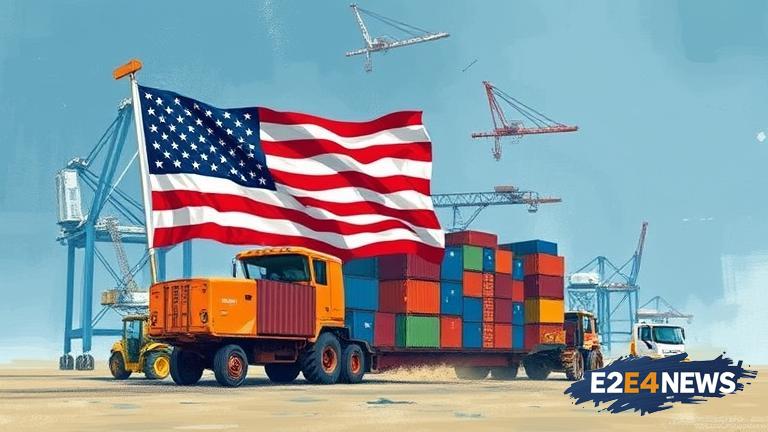The recent imposition of tariffs by the US government, led by President Donald Trump, is expected to have a significant impact on India’s export sector. The tariffs, which range from 10% to 25% on various goods, will affect several Indian industries, including textiles, pharmaceuticals, and chemicals. The Indian government has expressed concerns over the move, stating that it will lead to a decline in exports and negatively impact the country’s economy. The US is one of India’s largest trading partners, and the tariffs will likely disrupt the trade balance between the two nations. India’s export sector has been growing steadily over the years, with the US being a major destination for Indian goods. However, with the imposition of tariffs, Indian exporters will face increased competition and reduced demand, leading to a decline in exports. The textiles sector, which is one of India’s largest export earners, will be particularly affected. The US is a major market for Indian textiles, and the tariffs will make it difficult for Indian exporters to compete with other countries. The pharmaceutical sector will also be impacted, as the US is a significant market for Indian pharmaceuticals. The chemicals sector will also face challenges, as the tariffs will increase the cost of raw materials and reduce demand. Other sectors, such as engineering goods and electronics, will also be affected. The Indian government has been engaging with the US government to resolve the issue, but so far, no agreement has been reached. The tariffs will not only affect India’s export sector but also have a ripple effect on the entire economy. The Indian rupee has already weakened against the US dollar, making imports more expensive. The tariffs will also lead to job losses and reduced economic growth. The Indian government has announced measures to support exporters, including providing subsidies and reducing taxes. However, these measures may not be enough to offset the impact of the tariffs. The US-China trade war has also had a ripple effect on India’s export sector, as the US has imposed tariffs on Chinese goods, leading to increased competition from China. The Indian government has been trying to diversify its export markets, but the US remains a significant destination for Indian goods. The tariffs will also affect Indian companies that have invested in the US, as they will face increased costs and reduced demand. The Indian government has urged the US government to reconsider the tariffs, stating that they will have a negative impact on both countries. The World Trade Organization (WTO) has also expressed concerns over the tariffs, stating that they will disrupt global trade. The Indian government has announced plans to impose retaliatory tariffs on US goods, which will further escalate the trade tensions between the two nations. The tariffs will have a significant impact on India’s economy, and the government will need to take measures to mitigate the effects. The Indian export sector will need to adapt to the new reality and find ways to remain competitive in the face of increased tariffs. The government will also need to engage with the US government to resolve the issue and find a mutually beneficial solution.
